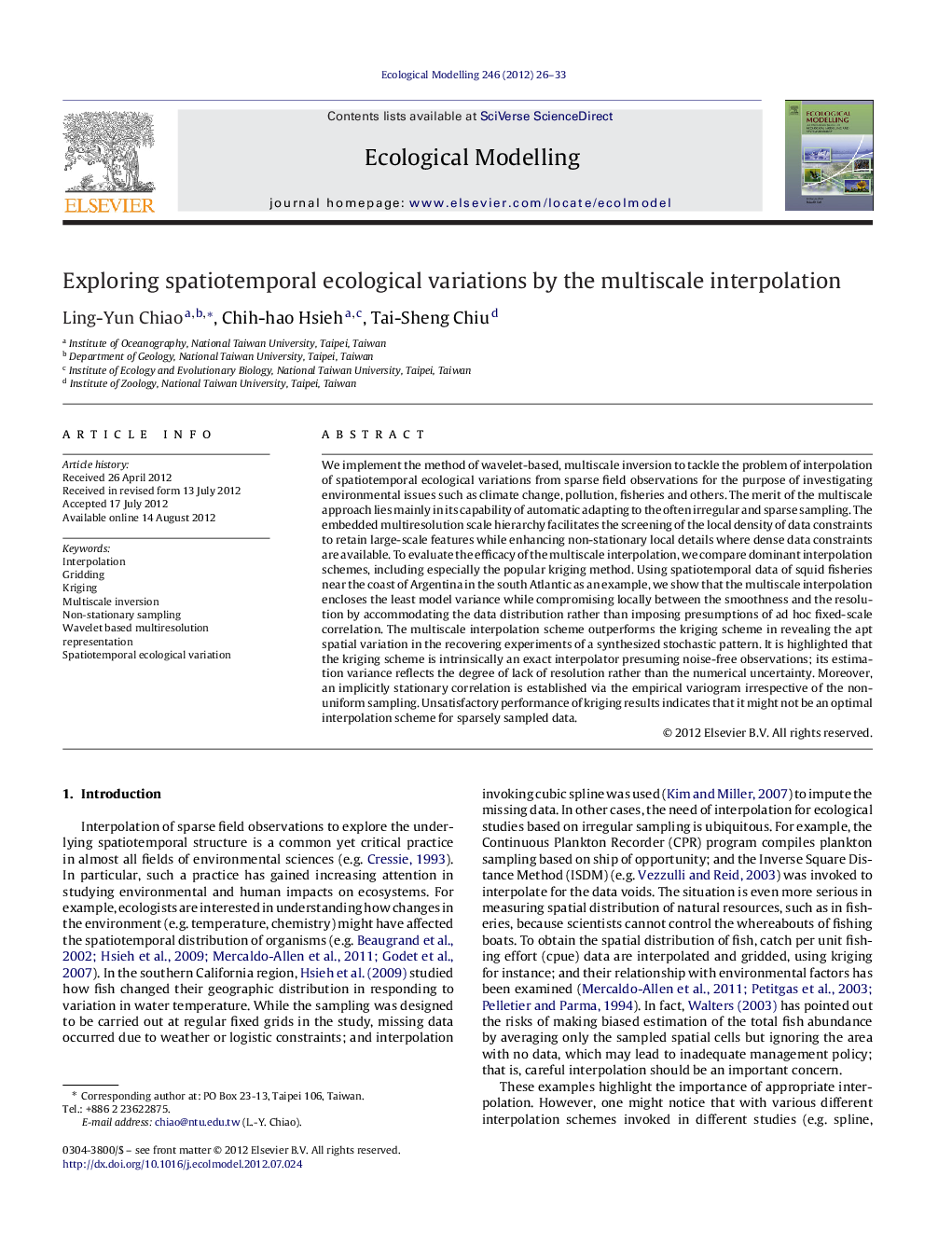| Article ID | Journal | Published Year | Pages | File Type |
|---|---|---|---|---|
| 4376287 | Ecological Modelling | 2012 | 8 Pages |
We implement the method of wavelet-based, multiscale inversion to tackle the problem of interpolation of spatiotemporal ecological variations from sparse field observations for the purpose of investigating environmental issues such as climate change, pollution, fisheries and others. The merit of the multiscale approach lies mainly in its capability of automatic adapting to the often irregular and sparse sampling. The embedded multiresolution scale hierarchy facilitates the screening of the local density of data constraints to retain large-scale features while enhancing non-stationary local details where dense data constraints are available. To evaluate the efficacy of the multiscale interpolation, we compare dominant interpolation schemes, including especially the popular kriging method. Using spatiotemporal data of squid fisheries near the coast of Argentina in the south Atlantic as an example, we show that the multiscale interpolation encloses the least model variance while compromising locally between the smoothness and the resolution by accommodating the data distribution rather than imposing presumptions of ad hoc fixed-scale correlation. The multiscale interpolation scheme outperforms the kriging scheme in revealing the apt spatial variation in the recovering experiments of a synthesized stochastic pattern. It is highlighted that the kriging scheme is intrinsically an exact interpolator presuming noise-free observations; its estimation variance reflects the degree of lack of resolution rather than the numerical uncertainty. Moreover, an implicitly stationary correlation is established via the empirical variogram irrespective of the non-uniform sampling. Unsatisfactory performance of kriging results indicates that it might not be an optimal interpolation scheme for sparsely sampled data.
► Multiscale interpolation scheme is introduced for non-stationary ecological data. ► The embedded scale hierarchy is advantageous for interpolating sparse sampling. ► The invoked lifting scheme enables wavelet transform in irregular manifolds. ► Performance of dominant interpolation schemes are compared. ► Drawbacks of the kriging scheme, popular in ecological studies, are discussed.
